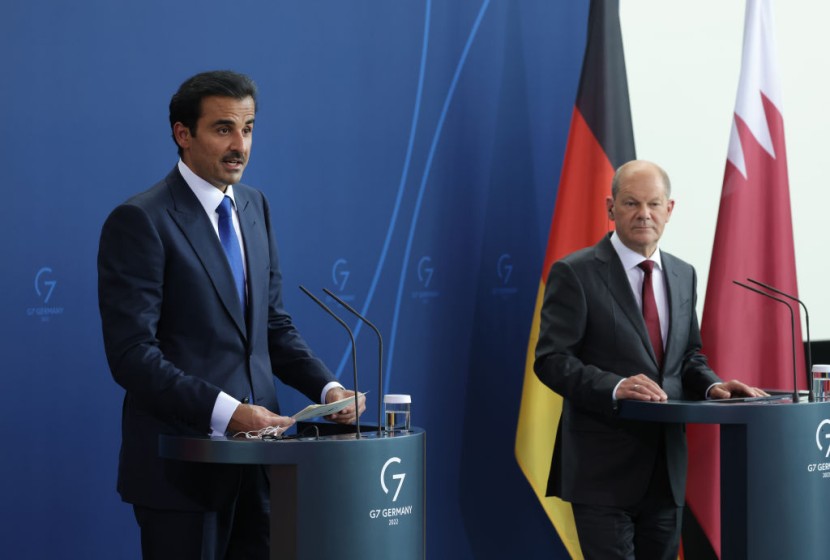
On Friday, Germany and Qatar signed an energy deal that may see Doha begin delivering liquefied natural gas (LNG) to Berlin as early as 2024.
Germany's future energy policy will include Qatar, according to German Chancellor Olaf Scholz, who spoke at a joint press conference with Qatari Emir Sheikh Tamim bin Hamad Al Thani in Berlin.
Germany, Qatar Expand Energy Cooperation
At the news conference, the Qatari emir informed journalists that his country intends to start supplying liquefied natural gas to Germany in 2024, according to CNN. Since the beginning of Russia's invasion of Ukraine, Germany has been under pressure from Ukraine and other European countries to make headway in weaning itself off Russian energy supplies.
Germany began building on its first floating LNG terminal earlier this month at Wilhelmshaven, a city and port in Lower Saxony in northern Germany.
German Chancellor Olaf Scholz said the Gulf state, which is one of the world's largest LNG suppliers, will be a key part of Germany's diversification drive away from Russian imports.
Russia is now Germany's top gas supplier, and Berlin has taken many steps to reduce its reliance on Moscow since it commenced its attack against Ukraine in late February. Qatar's Emir acknowledged that Doha intends to begin delivering LNG to Germany in 2024 and called the European gas market as "interesting." During his visit, Al Thani met with executives from German utilities RWE and Uniper to discuss long-term gas supply agreements.
Roudi Baroudi, CEO of Qatar Energy and Environment Holding, a consultant, claimed Doha was ready to satisfy demand for LNG from Germany in addition to providing existing clients, noting the enormous North Field natural gas field's continuous growth.
Per Al Jazeera via MSN, the North Field is located in the Persian Gulf off Qatar's northeastern coast and encompasses an area of over 6,000 square kilometers, or half of the country's total landmass.
Germany Claims Spying Surged to Cold War Level
According to the Associated Press, the chief of Germany's domestic intelligence agency (BfV) warned on Thursday that espionage has reached Cold War levels, if not higher, as tensions between the West and Russia reached unprecedented highs over the ongoing war in Ukraine.
Since the start of the Ukrainian conflict, the US and Europe have expelled hundreds of Russian ambassadors and officials, accusing many of those forced to leave of working as spies under diplomatic cover. Russian officials have been expelled from the country. Tensions between Russia and Western nations have been rising for years as a result of concerns ranging from Russian election meddling to Russia's 2014 unilateral annexation of Crimea.
The decision by Russian President Vladimir Putin in February to conduct an unprovoked, large-scale invasion of Ukraine fueled the fire, causing the United States and Europe to quickly unite behind Kyiv. Indeed, the conflict has spurred enormous, unprecedented shifts and decisions across the Western hemisphere in just a few months.
The United States and its European allies have imposed crushing economic sanctions on Russia as a result of the conflict, and the European Union is working to reduce its reliance on Russian energy. Countries that have previously refused to supply deadly aid to Ukraine for fear of offending Russia, such as Germany, have changed their attitudes and transferred weaponry to Kyiv since the invasion.
Finland and Sweden, two Nordic nations that have historically been neutral or non-aligned military, have asked to join NATO. According to some foreign policy experts, the current state of events between Russia and the West has virtually ushered in a new Cold War.
Related Article : White House: North Korea Could Launch Missile, Nuclear Test During US President Joe Biden's Visit to Japan, South Korea
@YouTube
© 2025 HNGN, All rights reserved. Do not reproduce without permission.








